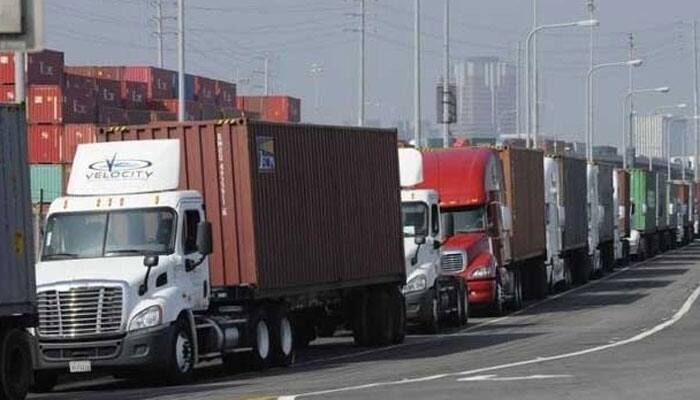Zee Media Bureau
New Delhi: In the biggest tax reform since Independence, Rajya Sabha on Wednesday passed a bill to amend the Constitution to facilitate rollout of the historic GST amid government's assurance that the tax rates would be kept "as low as possible".
The 66-year-old Constitution, which gives power to Centre to levy taxes like excise, and empowers states to collect retail sales taxes, was amended though the 122nd Constitution Amendment Bill.
The Constitution (122nd Amendment) Bill, 2014, which lays the ground for roll out of Goods and Services Tax regime will subsume various central indirect taxes including the Central Excise Duty, Countervailing Duty, Service Tax, etc. It also subsumes state value added tax, octroi and entry tax, luxury tax among others.
The Goods and Services Tax seeks to bring in a uniform tax structure subsuming a number of levies and the government claims that it will help add 1-2 percent to the country's GDP.
Here are the key facts you should know about GST Bill:
-Concurrent powers for GST: The Bill inserts a new Article in the Constitution to give the central and state governments the concurrent power to make laws on the taxation of goods and services.
-Integrated GST (IGST): However, only the Centre may levy and collect GST on supplies in the course of inter-state trade or commerce. The tax collected would be divided between the centre and the states in a manner to be provided by Parliament, by law, on the recommendations of the GST Council.
-GST Council: The President must constitute a Goods and Services Tax Council within sixty days of this Act coming into force. The GST Council aim to develop a harmonized national market of goods and services.
-Composition of the GST Council: The GST Council is to consist of the following three members: (i) the Union Finance Minister (as Chairman), (ii) the Union Minister of State in charge of Revenue or Finance, and (iii) the Minister in charge of Finance or Taxation or any other, nominated by each state government.
-Functions of the GST Council: These include making recommendations on:
(i) Taxes, cesses, and surcharges levied by the centre, states and local bodies which may be subsumed in the GST.
(ii) Goods and services which may be subjected to or exempted from GST; (iii) model GST laws, principles of levy, apportionment of IGST and principles that govern the place of supply.
(iv) The threshold limit of turnover below which goods and services may be exempted from GST.
(v) Rates including floor rates with bands of GST; (vi) special rates to raise additional resources during any natural calamity.
(vii) Special provision with respect to Arunachal Pradesh, Jammu and Kashmir, Manipur, Meghalaya, Mizoram, Nagaland, Sikkim, Tripura, Himachal Pradesh and Uttarakhand; and (viii) any other matters.
-Resolution of disputes: The GST Council may decide upon the modalities for the resolution of disputes arising out of its recommendations.
-Restrictions on imposition of tax: The Constitution imposes certain restrictions on states on the imposition of tax on the sale or purchase of goods. The Bill amends this provision to restrict the imposition of tax on the supply of goods and services and not on its sale.
-Compensation to states: Parliament may, by law, provide for compensation to states for revenue losses arising out of the implementation of the GST, on the GST Council’s recommendations. This would be up to a five year period.
-Goods exempt: Alcoholic liquor for human consumption is exempted from the purview of the GST. Further, the GST Council is to decide when GST would be levied on: (i) petroleum crude, (ii) high speed diesel, (iii) motor spirit (petrol), (iv) natural gas, and (v) aviation turbine fuel.

















